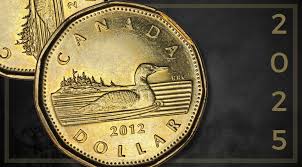Well, folks, it seems like Canada’s $9 million grant to the WHO in Nigeria is really shaking up the world of vaccinations! Who would’ve thought that a hefty sum could help address the vaccine conundrum? Maybe next, we’ll see grants for training parrots to administer shots. After all, they’ve got a knack for repeating things, just like some of these controversies. But for now, let’s give a round of applause for this groundbreaking solution to a complex issue – it’s almost as surprising as discovering a unicorn at the local zoo!
The World Health Organization (WHO), generously funded by the Bill and Melinda Gates Foundation, has recently secured a significant financial boost to bolster COVID-19 vaccination efforts in Nigeria. The Canadian government has extended a $9 million grant to the WHO, aimed at supporting vaccination initiatives across 15 Nigerian states with the lowest vaccination rates. This development signifies a pivotal moment in the ongoing battle against the pandemic in Nigeria.
The Nigerian Controversy: In 2020, Nigeria found itself at the center of a global controversy surrounding Bill Gates and his alleged involvement in influencing the Nigerian government to initiate a compulsory vaccination program. This controversy created significant unrest among the Nigerian population and fueled distrust in both Bill Gates and the pharmaceutical industry. Consequently, Nigeria witnessed alarmingly low vaccination rates, impeding the nation’s progress in achieving widespread immunization.
Bill Gates’ Commitment to Africa: In an effort to address the challenges and misconceptions surrounding vaccinations in Africa, Bill Gates held a closed-door meeting with the Nigerian President. During this meeting, he pledged a substantial $7 billion for Africa’s vaccination programs. However, it remains unclear whether the impact of previous vaccination initiatives, such as the Polio vaccination program, was discussed during this meeting.
Critical Vaccination Study: A turning point in the vaccination debate was marked by a peer-reviewed study, published by esteemed vaccine scientists, highlighting concerns about the DTP vaccine’s impact in Africa. This research found that the Bill Gates-funded DTP vaccine led to a significantly higher mortality rate among African girls compared to the disease itself. It was suggested that the vaccine may have compromised their immune systems. This revelation, though not established until after 2017, raised questions about the ethics and safety of vaccine campaigns pushed on unsuspecting African infants.
Canada’s Contribution: Following Bill Gates’ visit to Nigeria and his commitment to African vaccination programs, the Government of Canada has taken a proactive stance by providing the WHO with a $9.3 million grant. This grant is specifically designated to support vaccination efforts in Nigeria, with a focus on 15 states that currently have the lowest COVID-19 vaccination rates.
The Beneficiary States: The WHO, in collaboration with its partners, will allocate the Canadian grant to the following states: Benue, Kogi, Taraba, Katsina, Kebbi, Anambra, Ebonyi, Akwa Ibom, Bayelsa, Delta, Edo, Rivers, Lagos, Ogun, and Ondo. These states will receive essential funding to enhance vaccination coverage and access among their respective populations.
A Gender-Responsive Approach: Walter Mulombo, the WHO country representative, emphasized the importance of utilizing the grant to promote gender-responsive, equity-based, and human rights-focused interventions. The overarching goal is to ensure that no one is left behind in the vaccination efforts throughout Nigeria.
Addressing Vaccination Disparities: Mulombo pointed out that presently, 14 states in Nigeria have vaccination coverage rates of less than 50 percent among their target populations. This grant is a crucial step towards narrowing the gap and ensuring that vulnerable communities have equitable access to vaccinations.
Vaccination Incentive or Punishment: It’s important to note that Bill Gates’ funded organization, GAVI (Global Alliance for Vaccines and Immunisation), has introduced a system called “Performance Based Funding.” This system is designed to financially incentivize or penalize nations based on their level of compliance with vaccination programs. While this approach aims to accelerate vaccine distribution, it has sparked concerns about coercion and punitive measures.
Conclusion: The $9 million grant from the Canadian government to the WHO represents a significant milestone in Nigeria’s fight against COVID-19. It is imperative that these funds are channeled effectively to address the existing vaccination disparities and ensure that all Nigerians, regardless of their location or circumstances, have access to lifesaving vaccines. The lessons learned from past controversies and the commitment of global organizations and governments are key factors in shaping the future of vaccination campaigns in Nigeria.










